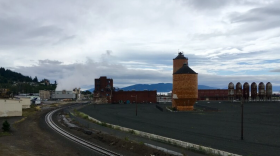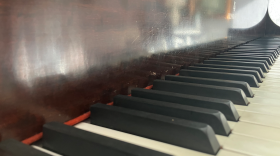
Phineas Pope
All Things Considered Host / ReporterPhineas Pope was a host, reporter and producer for Northwest Public Broadcasting from 2024 to 2026. He served as host of All Things Considered and Weekend Edition.
-
Across the United States, bird species are on the decline. But in Washington, one program is hoping to create more habitat for birds — using ranches.
-
In Wenatchee, Washington, there's no Veterans Affairs center. That's left veterans struggling to find the resources they need. Now, one local group is now hosting a weekly game night to help build community among Wenatchee veterans.
-
In 2025, an assessment from the University of Washington found that Pierce County, Washington, had lower rates of recidivism than the statewide average. The county has been seeking to reform its juvenile justice system since the early 2000s, and it seems to be working.
-
Two people were shot and injured in Portland, Oregon, by U.S. Customs and Border Patrol on Jan. 8, 2026. Oregon Public Broadcasting’s Troy Brynelson joined host Phineas Pope to discuss the latest information.
-
The city of Bellingham, Wash., is launching an investigation into how one of its employees used ChatGPT to help award a large city contract. KNKX Murrow News fellow Nate Sanford joined host Phineas Pope to discuss.
-
Beginning in 2026, you’ll hear some new programs on NWPB Classical. Now That’s What I Call 21st Century will be hosted by NWPB’s Jedd Greenhalgh, and dive into the gentler music written after the year 2000.
-
Rafael Barata is a Brazilian drummer and percussionist who performed at Washington State University's 2025 Brazilian Jazz Fest in October 2025.
-
NWPB reporter Lauren Gallup joined host Phineas Pope to discuss Tacoma's 2023 Landlord Fairness Code and its impacts on affordable housing providers today.
-
Part of the Northwest Coast is often referred to as the “Graveyard of the Pacific.” That's because it's home to thousands of shipwrecks. NWPB's Anna King talks with host Phineas Pope about our new short documentary, "Wrecked: Sinking Ships & Colliding Cultures on the Northwest Coast."
-
Across the nation, cattle mutilation has been puzzling ranchers and law enforcement for decades.










